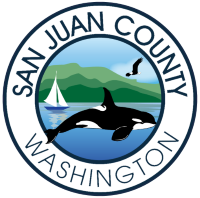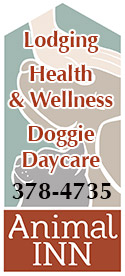HOT TOPIC #25: June 18, 2020 – Helping Businesses, their Employees, and their Customers Stay Safe
Posted June 20, 2020 at 6:59 am by Tim Dustrude
 COVID-19 updates from San Juan County around subjects on the minds of islanders
COVID-19 updates from San Juan County around subjects on the minds of islanders
There are some relatively simple best practices that our local businesses and community organizations should be following to ensure the safety of employees and volunteers, the safety of customers, and the ability to remain open and providing service.
These are unusual times and as you already know, there is nothing about COVID that is easy. The impacts on many fronts are dramatic and severe. All we can do is remain informed and involved, focus on what we can control, be patient and kind with each other, and be willing to adapt and evolve as the situation requires. Common sense and community spirit are vital to our success.
We’d like to share a few possible strategies. None of these are perfect and all of them require a little effort, but we feel that they’re worth doing to a degree that matches the resources and needs of your organization.
GENERAL GUIDELINES:
There is nothing especially glamorous about the basics, but they’re vital:
- Make sure that frequent handwashing is routine and embraced by all staff.
- Ensure that your staff and customers cover their faces when indoors or in any other situation where social distancing is impossible.
- Help build a culture of reasonable social distancing. Staff should socialize outdoors and be thoughtful about how their decisions outside of work impact their co-workers, customers, and their employer.
- Follow the WA State guidelines for your business or industry.
FOR EMPLOYEES JUST STARTING WORK:
- In a perfect world, new employees would quarantine for two weeks, on their own, with minimal to no contact with others before starting their job. We recognize that this is impractical for many situations, but is worth considering.
- Some employers are testing seasonal staff before they start work for the first time. Employers with more than 25 employees may be eligible for County organized asymptomatic testing (email [email protected] for more info). Some local medical providers may also be willing to do asymptomatic testing for smaller businesses, so reaching out to them may be a solution
- Screen employees carefully before they start work. Have they been exposed to anyone who is known or suspected to be positive?
- Make sure they have no active symptoms (here is a one page sheet with full details on symptoms). If they do have symptoms, ask them to quarantine and contact a local medical provider about being tested as soon as possible.
- Educate your staff on what symptoms are, make sure they understand the need to be thoughtful and diligent in self-monitoring.
ONGOING STEPS TO TAKE:
- Encourage employees to do a temperature check before coming to work each day (over 100.4F is the cut off).
- Quick screening of employees before they start their work each day is useful. Having them complete a simple form (link to a simple form) can help build a culture of safety.
- If possible, daily temperature checks before entering the workplace can be a valuable final screening tool.
- Take a close look at what steps an employer can provide to help build a culture of proactive thoughtfulness. Paid sick leave? Signage? Regular safety meetings? Ensuring safe operations takes daily nudges and expectation setting.
- Do you provide employee housing? If so, try to minimize density of staff in a shared space. Have employees who work together in close proximity live together.
FINAL THOUGHTS:
- Part of the goal is to reduce risk of a single case of course, but a bigger goal is to minimize the risk of further transmission. Every action and decision should be made with this in mind: if there is a case, how easy (or hard) will it be for public health staff to isolate and control the spread?
- It can’t be overstated how important it is to cover our faces. Unfortunately, this sound public health advice has become politicized, but the fact remains that building a strong culture of face covering is a major tool in reducing risk.
RESOURCES:
- Screening Guidelines for Businesses
- San Juan County COVID Resources for Businesses
- San Juan County Economic Development Council COVID Info
- CDC FAQ for Businesses
Contact San Juan County Health & Community Services with questions at [email protected] or 360-370-7500.
You can support the San Juan Update by doing business with our loyal advertisers, and by making a one-time contribution or a recurring donation.
Categories: Government, Health & Wellness










No comments yet. Be the first!
By submitting a comment you grant the San Juan Update a perpetual license to reproduce your words and name/web site in attribution. Inappropriate, irrelevant and contentious comments may not be published at an admin's discretion. Your email is used for verification purposes only, it will never be shared.